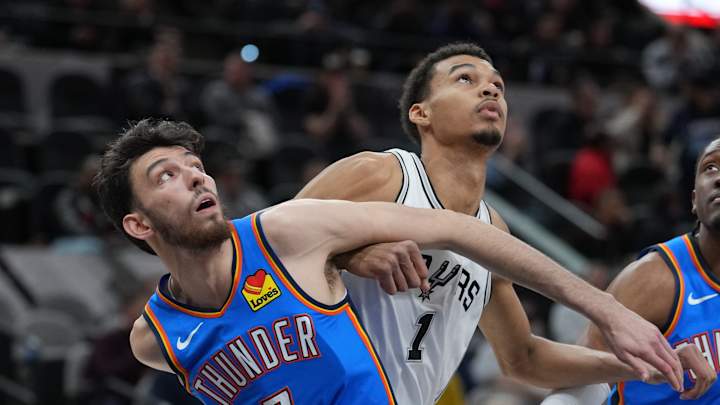Oklahoma City's Rebounding Problem Creates an Advantage, Not a Weakness

Rebounding has been the main gripe for the Oklahoma City Thunder this season, but it’s not as big of a deal as it’s made out to be. Sure, the team gets outrebounded here and there, but it feels like the coaching staff and the organization has preached that the strategy is intentional without directly saying it.
Sunday night against Phoenix was a perfect example. Jusuf Nurkic is traditionally a fantastic rebounder. He has his flaws as a player, but rebounding is not one of them. On the season, he’s grabbing 10.7 rebounds a game. The ESPN broadcast was in awe of his size all night, standing 7-foot tall and nearly 300 pounds. He’s a bruised in size, and on paper, it could certainly seem like he would exploit Oklahoma City’s weaknesses.
He did, in a way, but the Thunder still found a way to use it to their advantage. Nurkic set the Suns franchise record for rebounds in a game with 31 boards, 13 on the offensive end, and had a monster night in the stat sheet. Oklahoma City carried on with normal scheduled business, though.
The young team gave up a massive lead, but still held on in the fourth quarter knocking off a playoff-bound Suns team 118-110, covering the spread and winning in Phoenix. If it was that big of a problem, it would’ve costed the Thunder the game. But as Mark Daigneault has preached all season long, the Thunder will find a way to turn that weakness into a strength.
“A lot of nights we lose the rebounding battle,” Daigneault said to reporters after the game. “And as long as the benefit continues to outweigh the cost, we're going to continue to accept the trade offs. We're not going to be a perfect team.
"At the end of the day, there's more to the game than just rebounding. ... If we try to solve every problem, then we're gonna be trying to chase our shadow."
Oklahoma City understands its philosophy as a team and has fully embraced Daigneault’s style of play. The team understands its shortcomings, but doesn’t dwell on them.
When playing a dominant rebounder like Nurkic, the Thunder opts to exploit his defensive abilities and stretch the floor wide, making him cover all parts of the court. The team runs in transition and beats him down the floor. Chet Holmgren forces big men to step out on the perimeter and guard his 3-point shot.
If Oklahoma City tries to perfect everything, they could lose sight of what makes them a good team. Focusing on rebounding would take away from a chaotic, turnover causing defense and a fast-paced offense. Substituting in a traditional big man to counter opposing teams rebounding could slow down the offense and stunt Oklahoma City’s elite ball movement. There’s so much that goes into it.
On paper, it might seem like the Thunder’s rebounding effort is a weakness, but in reality, it’s part of what makes the team good.
Want to join the discussion? Like Inside the Thunder on Facebook and follow us on Twitter to stay up to date on all the latest Thunder news. You can also meet the team behind the coverage.
